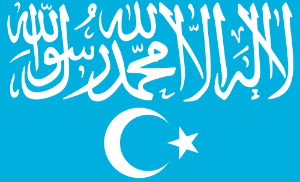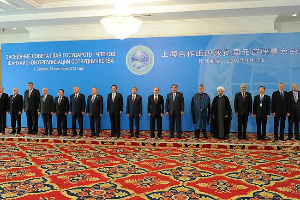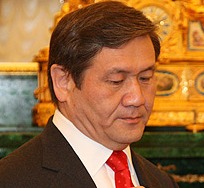Uighur Militants Seek Targets outside Xinjiang
By Jacob Zenn (04/23/2014 issue of the CACI Analyst)
On March 1, six men and two women from China’s Xinjiang Province ran into a train station in Kunming, Yunnan Province and stabbed 29 people to death. This was a rare example of a terror attack in southwestern China. It occurred only five months after a family of three from Xinjiang rammed their car into a gate in Beijing’s Tiananmen Square, killing several tourists. The Uighur-led Turkistan Islamic Party (TIP), which now functions like the “spokesman” for Uighur militants in Xinjiang praised both the Kunming and Tiananmen attacks, but refrained from claiming direct responsibility. Meanwhile, an organized insurgency largely independent of the TIP is brewing in China, which benefits from the TIP’s propaganda.

CACI Analyst, March 19, 2014
Russia's Intervention in Ukraine Reverberates in Central Asia
By Slavomír Horák (03/19/2014 issue of the CACI Analyst)
While Russia's intervention in Ukraine at first glance has few implications for developments in the Eastern part of former Soviet territory, Central Asian governments and elites are likely to analyze Russia's recent actions carefully. While the Crimea intervention could serve as a short term deterrent against foreign orientations away from Russia's regional integration project, the increasing Chinese influence in Central Asia will in the long term offer these states a powerful alternative to Russia and the crisis in Ukraine is increasing China's attractiveness as a partner.

Mongolia's Former President Plots Political Return Despite Corruption Convition
By John C.K. (the 19/02/2014 of the CACI Analyst)
In 2012, Mongolia’s former Prime Minister and President Nambaryn Enkhbayar was convicted of graft, embezzlement, misappropriation of government properties and misuse of his position, and received a seven year prison sentence, with three years commuted. Denouncing the charges, Enkhbayar said that the legal actions were a pretext to stop him running for political office, commenting, "In all countries where the political opponents are removed from contesting elections, the leaders of that country use corruption as an excuse ... This just shows that corruption is a very charged political word to fight against political opponents."

Turkistan Islamic Party Increases Its Media Profile
By Jacob Zenn (the 05/02/2014 issue of the CACI Analyst)
One of the main objectives of terrorist and other non-state militant groups, especially those which are significantly weaker than the states they oppose, is to win the narrative. The Turkistan Islamic Party (TIP), an Uighur-led and Pakistan-based militant group, in its own words seeks to “liberate East Turkistan [Xinjiang] from its Communist oppressors.” Although the TIP has carried out few attacks in China, it is a frequent contributor of anti-Chinese and anti-American propaganda to al-Qaeda online forums. The TIP’s praise of several high-profile attacks by Uyghurs in China in 2013 has placed the TIP in greater spotlight than ever before in its role as a mouthpiece for the Uighur militant cause.





